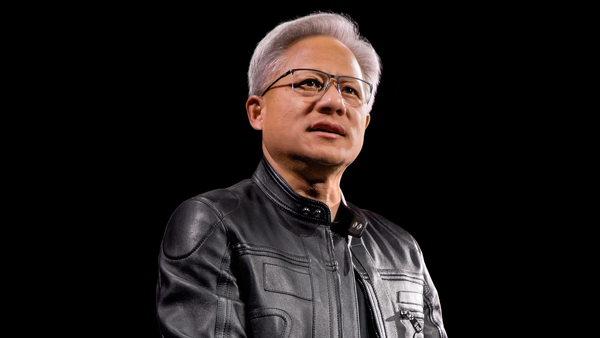Nvidia Chief Executive Officer (CEO) Jensen Huang on Wednesday dismissed concerns about a slowdown in demand for artificial intelligence (AI) chips, saying the market will be worth several trillion dollars in the next five years
The company recently reported third-quarter results that were in line with analysts’ expectations, but slightly below investors’ high hopes. This led to volatility in Nvidia’s shares. However, Huang assured investors that the AI race has just begun and will continue for a long time.
Nvidia’s stock is up nearly 30% so far this year, and a large part of the company’s gains are tied to heavy capital spending by Big Tech companies and hyperscaler data centers. Big companies like Microsoft and Amazon are leading this investment.
According to Matt Orton, head of consulting at Raymond James Investment Management, “This shows that the AI sector remains strong. The business of hyperscaler companies is growing rapidly and Nvidia is directly benefiting from this.” However, there has been some fatigue in AI-related stocks in recent times. OpenAI CEO Sam Altman recently warned that investors are “overly excited” about AI. But Huang seemed unconcerned about these concerns.He said, “The more you buy, the more you grow.” According to him, Nvidia’s new technology allows customers to process more data with less energy. He also said that all the company’s chips are completely sold out. Citing an example, Huang said a single customer outside China made a major purchase of $650 million in Nvidia’s H20 chips. The data center sector alone is expected to see capital expenditure of about $600 billion this year.
Huang believes that if the cost of a data center is $60 billion, Nvidia alone can get a share of about $35 billion. However, Nvidia’s quarterly revenue estimate is around $54 billion, which is only slightly above analysts’ average expectation ($53.14 billion). Still, the company’s net profit has recently outpaced even big tech giants like Apple.The company’s high-end Blackwell chips are already booked until 2026, while older Hopper processors also remain in strong demand. “When something new is growing so quickly and companies are investing billions of dollars, it’s clear we’re still in the early stages of the AI boom,” says Thomas Martin, portfolio manager at Globalt Investments.





